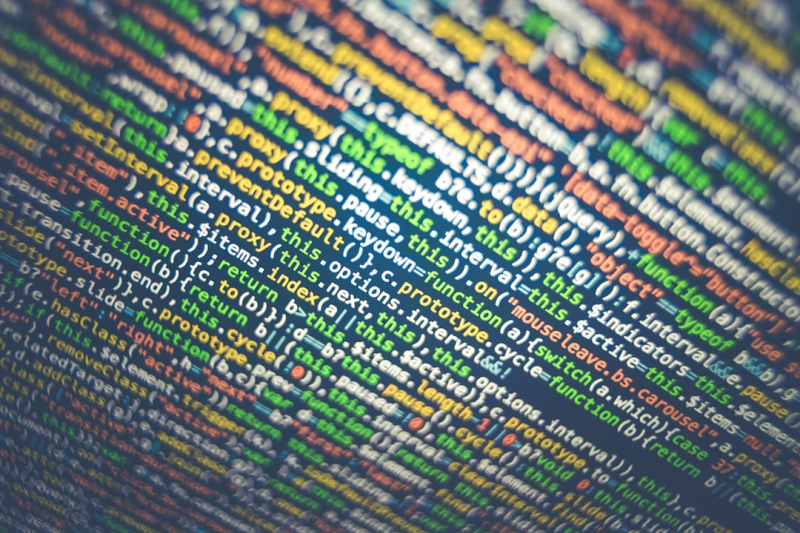Personal data refers to any information that can be used to identify a natural person, and is governed by laws. Some common examples of personal data include a person's name, address, phone number, email address, date of birth, and passport photo.
It's important to note that not all data is considered personal data. To be considered personal data, the information must relate to an identifiable natural person. In other words, if the data cannot be used to identify a person, it is not considered personal data.
Overview of Personal Data
Personal data can be sensitive in nature, and may include information about a person's race, religion, political affiliation, sexual orientation, health, and other personal details. In some cases, such sensitive information is given special legal protections.
Other examples are:
- First Name
- Last Name
- Gender
- Date of Birth
- Place of Birth
- Passport Photo
- Address
- Postal Code
- City of Residence
- Phone Number
- Email Address
- Citizen Number
- Race
- Religion or Belief
- Political Preference
- Sexual Preference
- Health
Is a Passport Photo Considered Personal Data?
Passport Photos are a common example of personal data. They can be used to identify a person and are therefore considered personal data under data protection laws. As a result, any entity that collects or processes passport photos must comply with data protection regulations and safeguard the privacy of the individual.
In general, organizations that handle personal data are required to follow certain rules and regulations to ensure that the data is processed lawfully, fairly, and transparently. This may include obtaining the individual's consent, providing clearness and concise information about how the data will be used, and implementing appropriate security measures to protect the data from unauthorized access or disclosure.
Frequently Asked Questions
When you cancel a payment or encounter an error, you will receive a notification email. If you make another attempt and successfully place the order, the payment will be deducted from that transaction.
Where Can I Get a Digital Passport Photo?You can get a digital passport photo from several sources:
Does My Passport Photo Meet the Requirements?The website will automatically verify if your photo meets the necessary requirements. If it does not meet one or more of the requirements, the website will provide feedback and prompt you to take a new photo.
- Glossary
- AI
- Aberration
- Acceptance Criteria
- Accuracy
- Age
- Anger
- Angle
- Aperture
- Apparel
- Appearance
- Artificial Light
- Attire
- Background
- Balance
- Bald
- Bangs
- Beanie
- Beard
- Bedridden
- Biometrics
- Blur
- Blushing
- Body Language
- Brightness
- Bun
- Burqa
- Camera Lens
- Camouflage
- Cap
- Cheeks
- Chest
- Chin
- Clarity
- Clearness
- Clothing
- Colors
- Compliance
- Composition
- Compression
- Contact Lenses
- Contrast
- Criteria
- Cropping
- Crown
- Crying
- DPI
- Daylight
- Detail
- Diffusion
- Dimensions
- Disability
- Disgust
- Distortion
- Distractions
- Double Chin
- Ear Attachments
- Earrings
- Ears
- Emotions
- Even Lighting
- Eye Bags
- Eyebrows
- Eyeglass Frame
- Eyelashes
- Eyelids
- Eyes
- Face
- Face Mask
- Facial Expression
- Facial Recognition
- Fear
- Feeding Tube
- Filters
- Fingerprint
- Flash
- Focus
- Forehead
- Frame
- Frowning
- Glare
- Glasses
- Glossiness
- Goatee
- Government
- Gradient
- Grain
- Hair
- Hair Gel
- Hairline
- Hairpin
- Hairspray
- Hairstyle
- Hat
- Head
- Head Tilting
- Headband
- Headgear
- Headphones
- Hearing Aid
- Hijab
- Hue
- ISO
- Identification
- Identity
- Identity Document
- Identity Theft
- Intensity
- Jaw
- Jewelry
- Joy
- Laughing
- Legitimation
- Lighting
- Lips
- Lipstick
- Makeup
- Microchip
- Mirroring
- Mouth
- Mouth Corners
- Municipality
- Mustache
- Myopia
- Natural Representation
- Neck
- Necklace
- Neutral Expression
- Nose
- Nose Job
- Nostrils
- Overexposure
- Overweight
- Pattern
- Personal Data
- Photo Paper
- Photo Printer
- Photo Quality
- Piercing
- Pixels
- Plain
- Ponytail
- Positioning
- Posture
- Presbyopia
- Privacy
- Pupils
- Recent
- Recognizable
- Red Eyes
- Reflections
- Resemblance
- Resize
- Resolution
- Retouching
- Sadness
- Saturation
- Scarf
- Scowling
- Security
- Selfie
- Selfie Stick
- Shadows
- Sharpness
- Shining
- Shoulders
- Shutter Speed
- Skin
- Skull
- Smiling
- Smudge
- Solid
- Spasm
- Speckling
- Strabismus
- Suitable
- Sunglasses
- Support
- Surface
- Surprise
- Sweating
- Tattoos
- Teeth
- Texture
- Throat
- Tie
- Tongue
- Torso
- Toupee
- Travel Document
- Tripod
- Turban
- Turtleneck
- Underexposure
- Uniform Background
- Uniforms
- Validity
- Visibility
- Wheelchair
- Wig
- Wrinkles
- Zoom
Don't Have Time Now?
Leave your email so that we can send you a discount coupon to continue later.
Oops! Usage Limit Reached
To maintain fair use of our service, we’ve set a limit of checks per user.
For photographers and other businesses with higher volume needs, please contact us about extended access options at hi@rostrio.com.
Thank you for your understanding!
